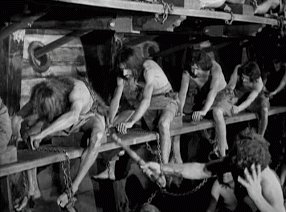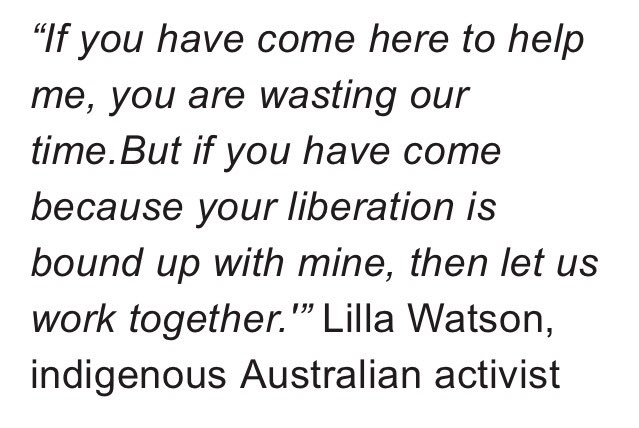9 Open Hearts, Open Minds, Crossed Purposes
Simon Ensor
Pirate’s bay play area.
Play mats, play house to hide in, to climb on, to run around, wheels to turn, seesaw to rock…
Kids of varying sizes were rushing around shrieking, babbling, laughing in varying languages, often at crossed purposes.
There were moments of understanding, moments of perplexity.
There were moments of synchronicity of action, moments of chaos, moments of inertia.
The ship sailed on on the grey, grey sea.
Parents looked on, only too happy to see their offspring safely occupied.
God’s space.
One parent, stepped into the kids’ play area, took out a towel, laid it down in a corner, stood still a few moments, eyes closed, silently held her hands raised, angled outwards away from her heart, then in one slow, graceful rhythmic movement knelt.
She then bowed down, head and hands to the deck, prostrate.
She waited a few moments in embryonic prayer, stood up, stood still then repeated the ritual.
An older woman, similarly veiled looked after two small children who continued to play.
The ship sailed on.
The kids continued to play their different games, in their different languages, oblivious to all else.
Two parents, perhaps Dutch, I saw, staring quizzically, perhaps critically at the prayer ritual.
Was it an incongruous adult intrusion here?
Or something else?
I was thankful that I was questioned thus.
I made notes quickly in Evernote.
I wrote the words to a song.
“Oh Lord. Please don’t let me be misunderstood.”
I don’t know why.
I couldn’t quite remember the rest of the words.
Language lessons.
My daughter came over to see me.
“How do you say: I am French, in German?” she asked.
I tried to remember.
I must have learnt that once.
Open hearts, open minds, crossed purposes.
I have been thinking today about discussions which have been going on about “Open Pedagogy”.
I watched a discussion on attempts to define the term, it was brought about thanks to the opening efforts of Maha Bali.
If the video of the discussion is openly available on Youtube.
Is that video an open educational resource? I think to myself.
Open educational resources.
It is only open to those who have
- internet access.
- Youtube access
- time to watch it.
- permission to watch it
- understanding of the language used.
If I am watching this discussion, it is because my attention has been drawn to it by people that I find myself identifying with, and by questions which I myself am concerned by.
If I am able to identify with these people is it not because I become part of an (academic) language community?
It is only an educational resource in so far as I choose, or someone chooses that I might learn from watching it.
If I say it is educational but you don’t learn from it, how is it an educational resource?
“Open”, it appears, has pretty much become a brand for what are termed OER or Open Education(al?) Resources.
Such “resources” or “content” are open to retain, reuse, revise, remix, redistribute and are licensed accordingly.
Such “resources” may be packaged as courses with more or less clearly defined didacticisation.
Such “resources” seem to be associated very closely with the internet.
Licenses however open are surely a recognition of enclosure, and a desire for attribution.
One might ask if folk songs, music, tales, games shared before the internet, sound recordings, books might be considered as “open content”, and/or “open education resources”.
Many of “Open Education Resources” seem to be so named because they are made by people who are employed in closed institutions of “education”.
I am not sure how far one can use the word “education” for “resources” even if they are aimed at being “educative”, “educational” puposes, or use in an institution of “education”.
It is not open or educational or a resource because you stick a logo on it.
Your open education maybe my/our oppression.
Is Wikipedia an educational resource or an informational resource?
Is informational synonymous with educational?
I think (hope) not.
Is this blog a resource or a pile of crap? (both/and?)
Is a pile of crap a resource?
Is a conversation a resource?
Is a memory a resource?
“Open Educational Practices” or OEP are, it appears, closely associated with the internet.
(I note my hesitation around education or educational – are we talking about open education or open educational practice/open education resources or open educational resources?)
The discussion in the Youtube video is closely associated with academia.
Academia and academics depend on citations, on attribution, on licensing for their living.
Academia might be a jungle but it ain’t (very) open.
Conferences and journals are generally open to those who pay/are paid.
Martin Weller in this recent post gives a working definition of OEP
“Open educational practice covers any significant change in educational practice afforded by the open nature of the internet.”
Well, surely we can have significant change in educational practice which is afforded by the open nature of the internet which is anything but “open” in terms of education.
Open pedagogy.
So can open pedagogy only be open if it is closely associated with the internet? (I think not)
I went and read (on internet) a useful post of Jim Luke’s entitled “What’s open? Are OER necessary?”
I found that educational in its stimulating of reflection to engage in annotation.
The link is here:
https://via.hypothes.is/https://econproph.com/2017/04/23/whats-open-are-oer-necessary/
Well, before rambling on, I thought I would find an OER which would help me unravel a few terms.
- education
- teaching
- pedagogy
- didactics
- instruction
- schooling.
Here it is: What is pedagogy?
We are hasty to define “Open pedagogy”, “Open resources” at our peril.
We need first to start unpicking such terms in our own contexts.
- education from schooling
- history from propaganda
- teaching from drilling.
- teaching from informing
- knowing from memorising
- knowing how from knowing to do
- pedagogy from didactics
We need to unpick our connections to what appears an “open” space to see how it is framed.
What I take away from the hangout about open is the enthusiasm for learning and joy at engaging in conversation.
What I feel is that this work of conversing across boundaries within the bounds of a Google hangout has value only if it is fun, ongoing, and leads us out from our local contexts to question our differing and universal boundaries to further our mutual educations.
The value of having open hearts and minds is to appreciate and respect divergence.
Bumping into each other and speaking with our crossed purposes, we need at least, a feeling of reassurance and safety that our play space is a safe space.
Do definitions really count?
Don’t we simply need places/spaces/concepts/yearnings/fears to bring us together?
Does it matter if you can’t define love?
Maybe I should put it another way: are god, open, love, as concepts, awesome precisely because of the struggle to define them?
Fuzzy understanding.
My daughter was terribly excited to communicate her new German to the little boy with blonde hair.
I am not sure she pronounced the term for French correctly.
He smiled.
She smiled.
What counts?
The ship sails on.
WHAT DO YOU MEAN YOU WANT TO GET OFF?? THIS IS OPEN! pic.twitter.com/PenzG7rWSz
— Simon Ensor (@sensor63) April 15, 2017
We really need to go back to what we mean by education, I think.
We really need to go back and think about what values are carried within education.
Is open education like taking kids to the zoo to look at other animals behind their bars?
Does open imply colonial?
Does open imply capitalistic?
Is the internet simply a means to extract resources from subject humans?
Return to Pirates’ Bay
I think back to Pirates’ Bay.
Do we have space in our education systems for play, fun, peace, silence, respect, spirituality?
If not, what can we do about it…together?
Can one have open pedagogy with out open minds and open hearts?
Can one have pedagogy without open minds and open hearts?
Can one have science without wonder, without poetry, without art, without unknowing, without others?
“Education, therefore, is a process of living and not a preparation for future living.”
John Dewey.
“Education is a social process; education is growth; education is not a preparation for life but is life itself.”
John Dewey.
Footnote.
About the Author
I don’t consider myself as a scholar or an academic.
Others might, whatever…
I don’t mind.
I am incorrigibly curious, I think, I ask uncomforting questions in English or French, I write, I draw, I paint, I act, I laugh and weep.
I’m Simon, @sensor63, I was Dodger in another life.
I am an atheist brought up in an evangelical family…that left its marks.
I have some sort of obtuse faith.
I work in Université Clermont Auvergne in France as an English language teacher and as a researcher.
I was always a researcher when others wouldn’t have thought so.
I learn, thanks to the many generous people who have taken time to let me listen
to them.
I blog stuff when it refuses to leave me in peace…
Attribution




